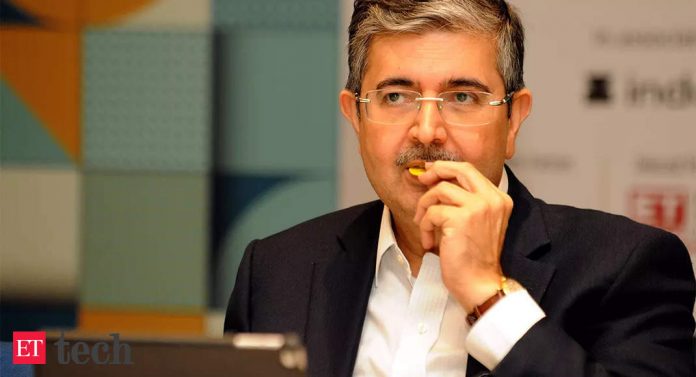fell further on their second day of trading on Monday, sparking anger from investors who had placed their faith in what was India’s biggest-ever initial public offering.
At the end of the company’s market debut on Thursday, its share price was down 27.4% from the offer price of Rs 2,150. At close on Monday it was Rs 1,362, down another 13%.
As Paytm’s shares went into freefall in the early hours of trading on Monday, many took to social media to vent. For some this meant posting memes about Paytm and stock markets in general. Others, however, went online looking for someone to blame.
This proved a misjudgement for Twitter user Harshad Shah, who wrongly directed his criticism at Uday Kotak, chief executive and managing director of . At 1.53 pm he posted, “@udaykotak please take responsibility for wrong pricing of #Paytam IPO and reward them to compensate [for] the losses.”
@udaykotak please take responsibility for wrong pricing of #Paytam IPO and reward them to compensate the losses https://t.co/Izl9jBPt2x
— Harshad Shah (@harshadshah1953) 1637569391000
Kotak responded within an hour and set the record straight. “Mr. Shah, please get your facts right. Kotak did not lead manage Paytm. Kotak did lead manage Zomato at issue price 76 (current market price 150), Nykaa at issue price 1125 (current market price 2100),” he posted at 2.50 pm.
Mr. Shah please get your facts right. Kotak did not lead manage Paytm. Kotak did lead manage Zomato at issue price… https://t.co/w7VaUnNc7E
— Uday Kotak (@udaykotak) 1637572833000
Paytm’s IPO was in fact managed by Morgan Stanley, Goldman Sachs, JPMorgan Chase & Co, ICICI Securities and Axis Capital Holdings. They all either declined to comment or didn’t respond to requests for comment on a Bloomberg report about Paytm’s IPO on Monday.
@udaykotak Kotak also lead managed Policybazaar. Decent pop there too
— Sanjeev Bikhchandani (@sbikh) 1637580065000
Shares of Paytm hit a low of Rs 1,271 on the Bombay stock Exchange on Monday. That’s more than 40% lower than the issue price of Rs 2,150 and more than 18% down from what it closed at on November 18, its first day of trading.
























